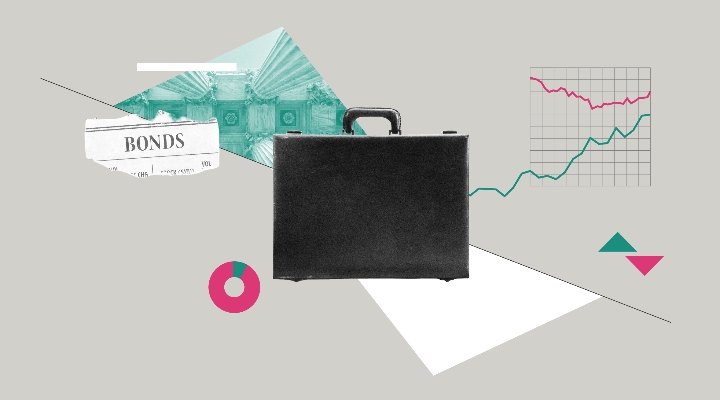
As interest rates remain elevated corporate bond fund managers are confident that one sector will give them healthy returns: Europe’s banking sector.
The global economy continues to grapple with sticky inflation, yet while high prices have squeezed profit margins for some, interest rate hikes have led banks to make huge profits for the first time in decades.
For Konstantin Leidman, fixed income portfolio manager at Wellington Management, the quality of a financial company’s assets is key. In Europe the story has been a positive one.
“Europe went through two major crises, the Global Financial Crisis in 2009 and the European Sovereign crisis in 2011. Since then, the banking system has been regulated in a very safe way in terms of quality assets,” he tells Morningstar.
In the Wellington Global High Yield Bond Fund (GBP N ACH) financials makes up 12.1% of the fund’s sector distribution, just below the benchmark, ICE BofA Global HY Constrained hedged GBP. The fund has a Morningstar Medalist Rating of Silver.
“The growth of European financials before the sovereign crisis in Europe was quite strong, high yield before the global financial crisis was growing in double digits for several years in percentage terms. And we have just not seen any growth recently. So that again is a thing that makes me rather comfortable in the space.”
He is also drawn to the sector because it deals with a lower level of competition, unlike for example, US and European carmakers.
As of February 2024, Leidman held Banco de Credito Social Cooperativo (BCC), an issuer of the Spanish bank, which makes up 0.43% of the fund and yields 5.25%.
Last year Morningstar's DBRS elevated the credit rating of BCC to BBB to reflect what it says has been a positive evolution in the capital of the business and the progressive reduction in risky assets.
Trimming Banking Bond Exposure
Yet, Thomas Hanson, head of European high yield at Aegon, believes that the opportunity set by banking may be less attractive than it was last year, with the sector allocation in the fund being trimmed slightly.
“You should never think that a fund should permanently dwell in any part of the credit universe be it a ratings allocation or a sector. We are looking to allocate to the best compensated opportunities at any point in time and banking was certainly that for us last year.”
But Hanson still backs European banks, especially after Credit Suisse was taken over by UBS in March 2023.
“There was a lot of opportunity to add risk in good quality structured bonds with high back ends [a steepening yield curve]. We thought they offered exceptional value and in fact we have been the most overweight in banks over the past six to twelve months we have ever been in the fund.”
In the Aegon High Yield Global Bond Fund, which has a Gold Rating, banking is the second largest sector allocation at 16.5%. (The benchmark is the ICE BofA Global High Yield Constrained USD Hedged, which has a 4.4% exposure.) The Italian bank, UniCredit, is also one of the fund's top issuers, representing 1.61% of the fund and yielding 7.3%.
However, Hanson has also dialled back some of his exposure to bonds in leisure and consumer cyclicals, although they will still feature as part of the fund.
“The whole thesis there was to do with the fact that we gave the consumer a bit more credit. We thought they were a bit stronger than the broader market was giving them credit for. We were right in doing that.”








.jpg)





















